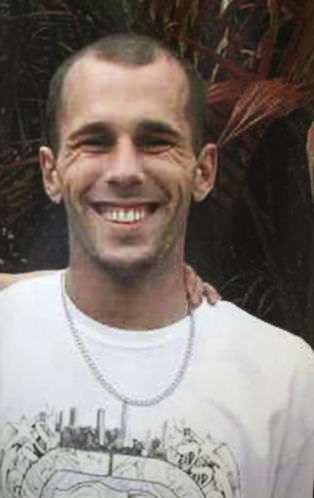Police Informant Says His Lies Killed a Harmless Pot Smoker

Here is how one source described Ronnie Coogle, a former confidential informant for the Tampa Police Department, in an interview with Tampa Bay Times reporter Peter Jamison: "He's just the scum of the fucking earth. I hate to say that. I hate to cuss. But it's the truth. He is nobody to give information about nothing to nobody, because everything that comes out of his mouth is a lie." And that was Coogle's brother. Saying that Coogle has a credibility problem is like saying that Darth Vader has an image problem.
It is therefore hard to know what to make of Jamison's disturbing story, in which Coogle blames his police handlers for fabrications that resulted in the death of a harmless pot smoker named Jason Westcott during a drug raid last May. But one thing seems clear: The cops recklessly relied on Coogle's highly questionable word as long as he was helping them makes busts, turning against him only after he accused them of misconduct. Now the police department argues that Coogle is utterly unreliable except when it comes to providing evidence against Westcott and other drug suspects.
On the night of May 27, armed men dressed in black entered the home that Westcott shared with his boyfriend, Izzy Reyes, who was sleeping on the couch. One of them threw Reyes to the floor, shouting, "Police! Search warrant!" Hearing the tumult, Westcott, who was in bed, grabbed a legally owned pistol and opened the bedroom door. The cops fired five rounds, killing him. Searching the house, they found 0.2 gram of marijuana, which was 99.99 percent less than the pound Coogle had claimed to have seen while buying a gram from Westcott the previous month. Coogle also claimed that Westcott and Reyes had a heroin connection in New York, but there was no heroin in the house.
Coogle, who said he was guilt stricken after learning about Westcott's death, told Jamison he made it all up under pressure from his handlers: Westcott might occasionally sell a little pot to his friends, but he was hardly a major dealer, and he had nothing to do with heroin. Coogle said he did accurately report that Westcott owned a pistol, but a detective transformed that fact into a claim that Westcott carried the gun during every drug deal. "It was a small but consequential detail," Jamison writes, "elevating Westcott to an armed drug trafficking suspect and triggering the use of the SWAT team."
Coogle, despite his self-reported pangs of conscience, emerges as a thoroughly despicable character, not only ratting on friends for money but, by his own account, lying in the process. Yet Coogle's avowed lies present a problem for a police department that relied on him to justify a dangerous SWAT raid. "In July," Jamison notes, Tampa Police Chief Jane Castor "vouched for his credibility." Defending the investigation that resulted in Westcott's senseless death, she said an informer with a "track record" of providing "reliable information about drug dealers" had reported seeing a pound of marijuana in the home and had "additional information suggesting trafficking in heroin." But Castor's opinion of Coogle changed after he said the case against Westcott was built on lies:
After Coogle went to the FBI…Castor took a different view of the man whose truthfulness she had endorsed. "I don't believe him at all," she said.
In an interview with the Times several weeks after Coogle met with federal investigators, Castor and her chief spokeswoman, [Laura] McElroy, savaged the credibility of their one-time "reliable informant." But only to a point.
They said they still believed the information he had fed to narcotics detectives about Westcott. They said it was only his recantation and accusations against his handlers that were untrue.
"You really think that this guy is in a position to question the integrity of police officers?" McElroy said. "A C.I.? Really? I mean, come on, C.I.'s are not upstanding citizens. It's a joke."
It is indeed a joke, but not in the way McElroy means. It is risible that cops expect to have it both ways, saying an informant is solid as a rock when he provides information to justify a search but totally unbelievable when his claims make the police look bad. Yet as New York defense attorney and criminal justice blogger Scott Greenfield tells Jamison, that pattern is familiar. "These are the same guys who are so very truthful that [police] put other people in life-threatening situations based on what they say," Greenfield says. "When the snitch turns, they're a pathological liar and we shouldn't pay attention."
